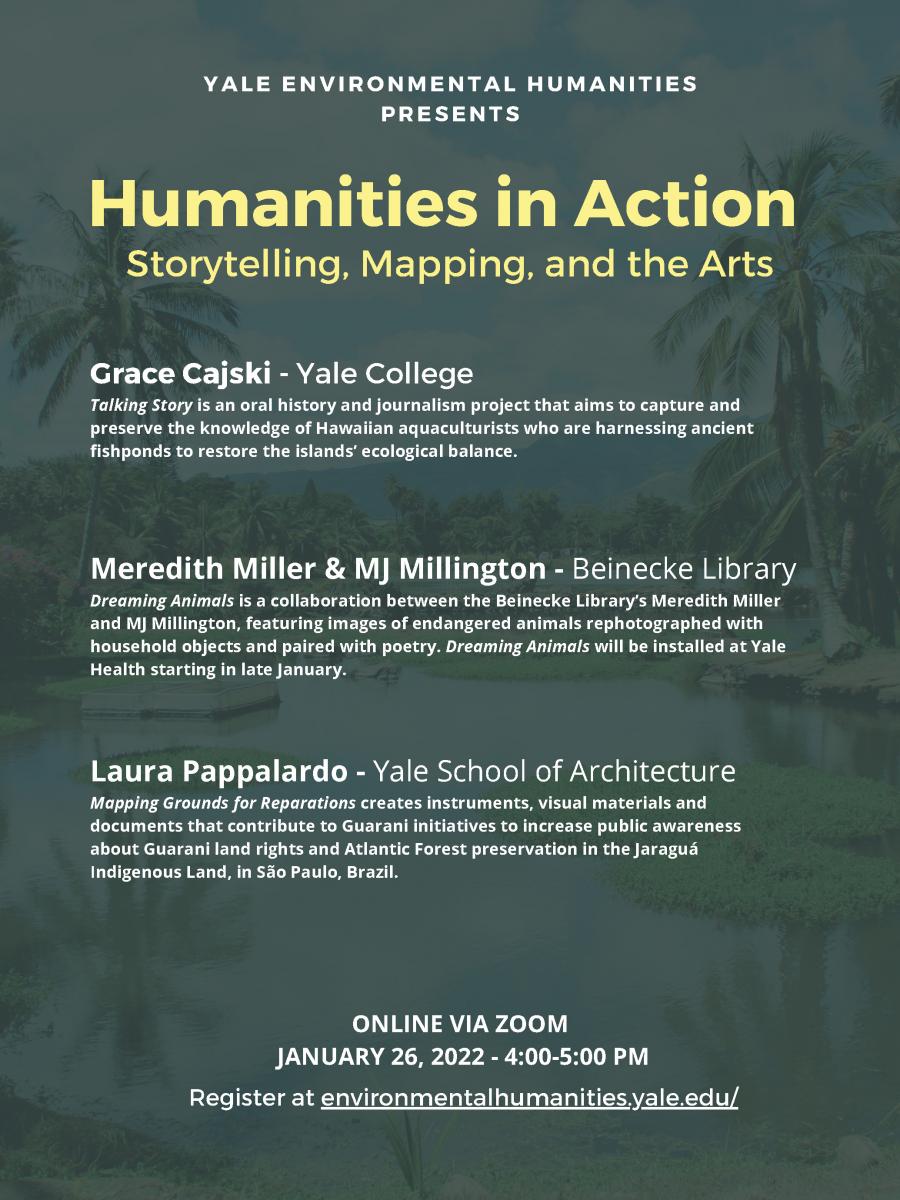
This ”Humanities in Action” panel features speakers discussing three recent environmental humanities projects:
Grace Cajski, Yale College, ”Talking Story: How Hawaii’s Modern Aquaculturists Discovered a Solution to the Future in the Past”
Talking Story is an oral history and journalism project that aims to capture and preserve the knowledge of Hawaiian aquaculturists who are harnessing ancient fishponds to restore the islands’ ecological balance. The oral history interviews will contribute to a growing archive at the Center for Oral History at the University of Hawaii. Cajski’s journalism efforts have resulted in essays in ECO, Oceanographic Magazine, and Humanities for All.
Meredith Miller and MJ Millington, Beinecke Library, “Dreaming Animals”
Dreaming Animals is a collaboration between the Beinecke Library’s Meredith Miller and MJ Millington. Miller prints images of endangered animals from the Beinecke Rare Book and Manuscript Library’s digital collections, and then re-photographs them in scenes she creates with household objects. Millington then uses the photograph to write a poem exploring the relationship between animals and humans. Text and image are joined together to create the Dreaming Animals series of large format broadsides, which will be installed at the Yale Health Center starting in late January 2022.
Laura Pappalardo, Yale School of Architecture, “Mapping Grounds for Reparations in the Jaraguá Indigenous land, São Paulo, Brazil”
Mapping Grounds for Reparations creates instruments, visual materials and documents that contribute to Guarani initiatives to increase public awareness about Guarani land rights and Atlantic Forest preservation in the Jaraguá Indigenous Land, in São Paulo, Brazil. A website, Grounds for Reparations, and a publication serve as instruments for public engagement, complicating the debate of how infrastructural constructions’ impacts have historically encroached upon Atlantic Forest and Guarani territory in São Paulo.
Moderated by Paul Sabin, Faculty Director, Yale Environmental Humanities
The Yale Environmental Humanities Grant Program supports public humanities projects by members of the Yale community, including undergraduate and graduate students, staff, and faculty. Projects include artistic endeavors, educational programming, and accessible media, representing diverse disciplinary fields and engaging with geographies from New Haven to Brazil to Eastern Europe. Members of the Yale community are currently invited to submit proposals for the next round of environmental humanities grants. Grant proposals are due February 6. Click here for further information.
